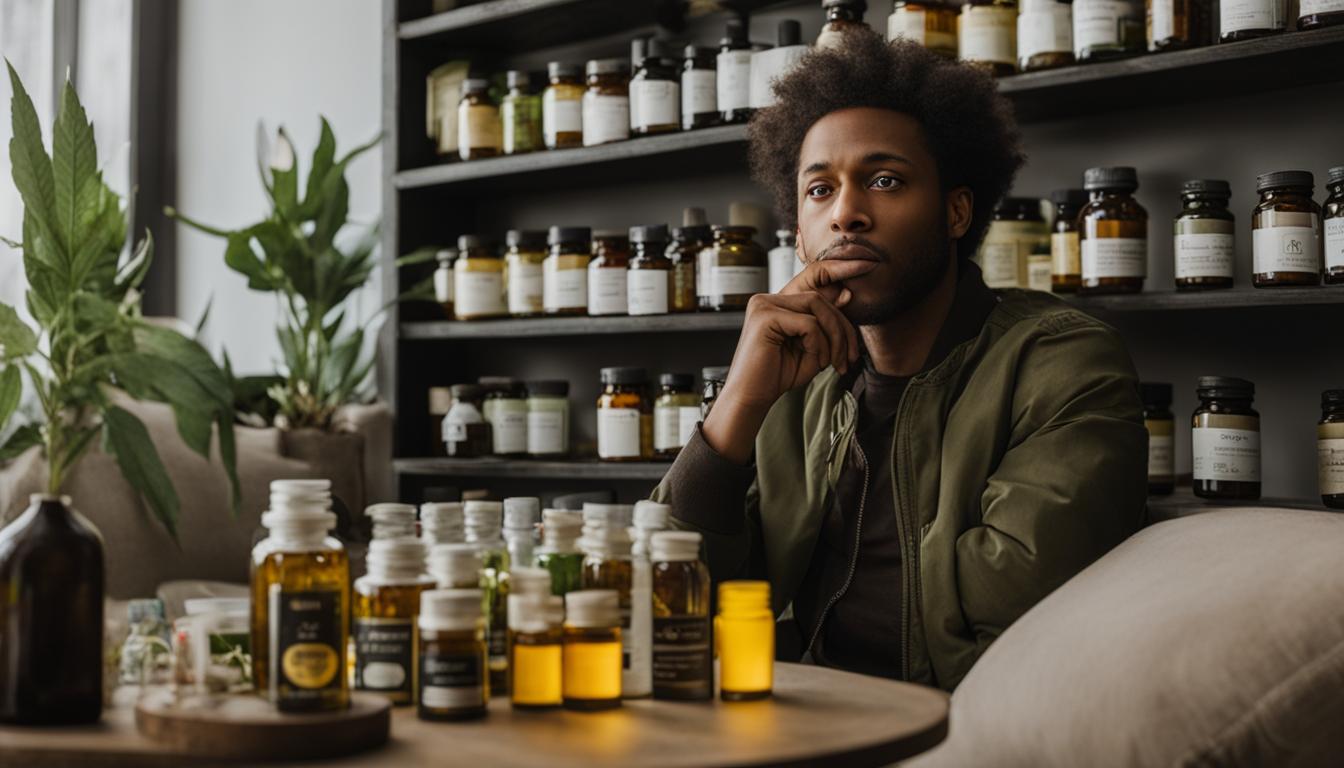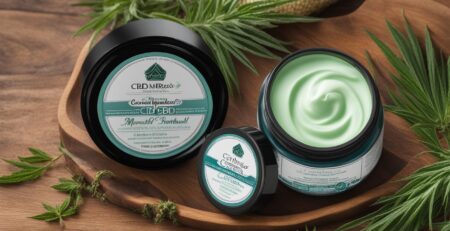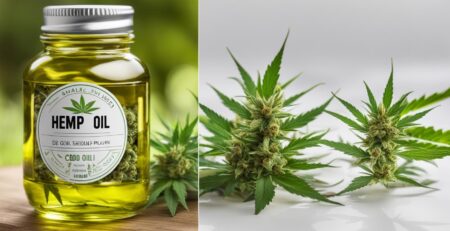Unraveling the Mystery: Why CBD Might Not Work for You
CBD oil, also known as cannabidiol, has gained popularity as a natural alternative for various health issues. It is used for a wide range of conditions, but its effectiveness may vary from individual to individual. Understanding the reasons why CBD might not work for everyone can help make informed decisions about its usage.
Key Takeaways:
- CBD effectiveness can vary from person to person.
- Personal CBD reactions and variability are factors to consider.
- There are individual factors that can affect CBD treatment.
- Not all CBD products may be of the same quality or potency.
- Consulting a healthcare professional can provide guidance on CBD usage.
What is CBD Oil and How Does It Work?
CBD oil, also known as cannabidiol, is a non-psychoactive compound found in cannabis and hemp plants. It has gained popularity as a natural alternative for various health issues. CBD oil interacts with the body's endocannabinoid system, which is responsible for maintaining balance and regulating various bodily functions.
The endocannabinoid system consists of receptors located throughout the body, including the brain, organs, and immune system. When CBD oil is consumed, it binds to these receptors, influencing the activity of neurotransmitters and promoting a state of balance, known as homeostasis. By modulating the endocannabinoid system, CBD oil has shown potential in alleviating pain, reducing inflammation, improving heart health, and treating skin conditions, among other benefits.
The therapeutic potential of CBD oil is not limited to a specific condition, as its interaction with the endocannabinoid system allows it to impact various bodily processes. However, it is important to note that the effectiveness of CBD oil may vary from person to person, depending on factors such as dosage, individual biochemistry, and the specific condition being addressed. Consulting with a healthcare professional can help determine the appropriate usage and dosage of CBD oil for each individual.
CBD Oil for Anxiety and Depression
Anxiety and depression are common mental health conditions that can significantly impact a person's quality of life. While there are various treatment options available, some individuals may seek alternative approaches to manage their symptoms. CBD oil has emerged as a potential option for anxiety and depression, offering a natural and holistic solution.
Studies have suggested that CBD oil may have an anxiolytic effect, meaning it has the potential to reduce anxiety symptoms. CBD interacts with serotonin receptors in the brain, which are responsible for regulating mood and emotions. By binding to these receptors, CBD may help promote feelings of calmness and relaxation, ultimately alleviating anxiety.
When it comes to depression, CBD oil may also offer potential benefits. Research suggests that CBD has antidepressant-like effects, possibly due to its ability to enhance serotonin signaling. By increasing serotonin levels in the brain, CBD may help regulate mood and reduce depressive symptoms.
The Potential of CBD for Mental Health
It is important to note that while CBD oil shows promise as a complementary treatment for anxiety and depression, more research is needed to fully understand its efficacy and safety. The use of CBD for mental health conditions should always be discussed with a healthcare professional, as they can provide personalized guidance based on individual needs and circumstances.
Overall, CBD oil offers an intriguing avenue for individuals seeking alternative options for managing anxiety and depression. Its natural properties and potential serotonin-regulating effects make it a compelling option for those looking to address their mental health concerns. While further studies are required to validate its effectiveness, CBD oil's potential therapeutic benefits continue to be explored, providing hope and potential relief for individuals struggling with anxiety and depression.
Table: Prospective Benefits of CBD Oil for Anxiety and Depression
| Benefits | Anxiety | Depression |
|---|---|---|
| Reduction in symptoms | ✓ | ✓ |
| Potential mood regulation | ✓ | ✓ |
| Natural and holistic approach | ✓ | ✓ |
| Anxiolytic effects | ✓ | |
| Antidepressant-like effects | ✓ |
CBD Oil for Addiction Recovery
Individuals struggling with substance abuse face immense challenges on their road to recovery. While traditional treatment methods have proven effective for many, there is growing interest in the potential benefits of CBD oil in addiction recovery. CBD, or cannabidiol, has shown promise in alleviating symptoms associated with substance abuse, such as cravings, anxiety, and withdrawal symptoms.
Studies have suggested that CBD oil may interact with the brain's serotonin receptors, reducing drug-seeking behavior and helping individuals manage their addiction. By modulating the brain's reward system, CBD oil may help individuals regain control over their cravings and decrease the risk of relapse. Additionally, CBD oil has been investigated for its potential in breaking the smoking habit, offering hope to those struggling with nicotine addiction.
It is important to note that while CBD oil shows promise in addiction recovery, it should not be considered a standalone treatment. It is essential to seek professional advice and guidance before incorporating CBD oil into a comprehensive addiction recovery plan. Each individual's journey to recovery is unique, and a personalized approach is crucial in achieving long-term success.
| Benefits of CBD Oil for Addiction Recovery | Challenges of CBD Oil in Addiction Recovery |
|---|---|
|
|
While CBD oil for addiction recovery holds promising potential, further research is needed to fully understand its effectiveness and optimal usage. It is essential to consult with healthcare professionals experienced in addiction recovery to determine the most appropriate treatment approach for each individual. By exploring the benefits of CBD oil in conjunction with traditional therapies, individuals can enhance their chances of successful recovery.
How Does CBD Differ from Marijuana?
When exploring the world of cannabis and its potential benefits, it's important to understand the differences between CBD and marijuana. While both are derived from the cannabis plant, they have distinct effects on the body.
CBD, or cannabidiol, is a non-psychoactive compound found in cannabis and hemp plants. This means that CBD does not produce a “high” feeling like marijuana does. CBD oil contains cannabinoids without the psychoactive chemicals found in marijuana. This makes CBD a popular choice for individuals seeking the potential therapeutic benefits of cannabis without the mind-altering effects.
Marijuana, on the other hand, contains THC, or tetrahydrocannabinol, which is responsible for the psychoactive effects associated with the plant. THC binds effectively to the CB1 receptors in the brain, leading to the euphoric and intoxicating effects that marijuana is known for.
“CBD is non-psychoactive, meaning it does not produce a ‘high' feeling.”
The distinction between CBD and marijuana is important for individuals seeking natural alternatives for various health issues. By understanding the differences, consumers can make informed decisions about the products they choose to incorporate into their well-being routines.
Table: A Comparison of CBD and Marijuana
| Aspect | CBD | Marijuana |
|---|---|---|
| Psychoactive effects | Non-psychoactive | Produces a “high” feeling |
| Chemical composition | Cannabinoids without psychoactive chemicals | Contains THC and other psychoactive chemicals |
| Legal status | Legal at the federal level in the United States when derived from hemp | Legal for medical and recreational use in certain states |
| Potential therapeutic benefits | Pain relief, reduced inflammation, improved sleep | Pain relief, appetite stimulation |
Overall, CBD and marijuana offer different effects and benefits. CBD has gained popularity as a natural alternative for various health issues, while marijuana is often used for its psychoactive properties and potential medicinal benefits. Understanding the distinctions between the two can help individuals make informed choices about their cannabis usage.
CBD Oil Safety and Administration
When it comes to using CBD oil, safety and proper administration are essential considerations. While CBD oil is generally considered safe, it's important to be aware of potential side effects that some individuals may experience. Common side effects may include dry mouth, low blood pressure, or drowsiness. It's crucial to consult with a healthcare professional before incorporating CBD oil into your routine, especially if you are pregnant, breastfeeding, or taking medication.
Proper dosage is another important factor to consider when using CBD oil. The optimal dosage can vary depending on individual factors such as body weight, metabolism, and the specific condition being treated. Starting with a low dosage and gradually increasing it may help you find the right amount that works best for you. It's always recommended to follow the dosage instructions provided by the manufacturer or consult with a healthcare professional for personalized guidance.
“Safety is our top priority when it comes to CBD oil. We always recommend consulting with a healthcare professional before starting any new treatment, especially if you have any underlying medical conditions or are taking medication that may interact with CBD.”
When administering CBD oil, there are different methods to choose from, including oral consumption, sublingual use, or topical application. Oral consumption involves swallowing CBD oil capsules or adding drops to food or beverages. Sublingual use involves placing oil drops under the tongue, allowing for faster absorption into the bloodstream. Topical application involves applying CBD-infused creams or lotions directly to the skin, targeting specific areas of discomfort or inflammation.
Table: CBD Oil Administration Methods
| Administration Method | Advantages | Disadvantages |
|---|---|---|
| Oral Consumption | Easy to incorporate into daily routine | Takes longer to feel the effects |
| Sublingual Use | Faster absorption into the bloodstream | May have a strong taste |
| Topical Application | Targeted relief for specific areas | May not be as effective for systemic issues |
Remember, everyone's response to CBD oil can vary, so it's important to monitor your own experience and adjust accordingly. If you experience any severe or concerning side effects, it's essential to discontinue use and seek medical attention.
The Biochemical Divergence Between CBD and THC
When it comes to the biochemical properties of CBD (cannabidiol) and THC (tetrahydrocannabinol), there are significant differences that contribute to their distinct effects on the body. While both cannabinoids interact with the endocannabinoid system, they do so in different ways, resulting in varying therapeutic outcomes.
CBD does not bind effectively to CB1 receptors in the brain, which are responsible for the psychoactive effects of THC. This lack of binding explains why CBD does not produce the characteristic “high” associated with marijuana use. Instead, CBD's interaction with CB1 receptors is believed to modulate and influence the overall endocannabinoid system, leading to various potential health benefits.
On the other hand, THC effectively binds to CB1 receptors, triggering the psychoactive effects that give marijuana its reputation. This binding results in the euphoria and altered perception commonly associated with THC use. While THC has its own therapeutic properties, these psychoactive effects can be undesirable for some individuals.
“CBD and THC interact with the body's endocannabinoid system differently. While CBD does not bind to CB1 receptors in the brain, THC binds effectively, leading to psychoactive effects.”
| CBD | THC | |
|---|---|---|
| Binding to CB1 Receptors | Does not bind effectively | Binds effectively |
| Psychoactive Effects | Non-psychoactive | Produces psychoactive effects |
| Therapeutic Potential | Varied potential benefits | Varied potential benefits |
Understanding the biochemical divergence between CBD and THC is crucial in appreciating their individual effects and potential therapeutic applications. While CBD offers a non-intoxicating option with a range of potential benefits, THC provides unique effects that may be desired in certain situations. By recognizing these differences, individuals can make more informed decisions about their cannabinoid usage based on their specific needs and preferences.
Weighing the Therapeutic Merits of CBD and THC
When it comes to the therapeutic benefits of cannabis, both CBD and THC have shown potential in addressing various health concerns. CBD, also known as cannabidiol, has been studied for its effects on chronic pain, sleep disorders, and mental health issues. THC, or delta-9-tetrahydrocannabinol, has demonstrated pain-relief potential and has been used in conjunction with chemotherapy treatments. While these cannabinoids offer distinct benefits, combining CBD and THC may enhance the therapeutic effects while reducing certain side effects.
| CBD | THC | |
|---|---|---|
| Therapeutic Benefits | CBD has shown promise in alleviating chronic pain, reducing inflammation, and improving sleep quality. It has also been studied for its potential in managing mental health conditions such as anxiety and depression. | THC is known for its analgesic properties, helping to relieve pain and reduce nausea associated with chemotherapy treatments. It may also stimulate appetite and reduce muscle spasms. |
| Pain Relief | CBD may provide pain relief by reducing inflammation and sensitization of pain receptors. It can be used as an alternative to traditional pain medications. | THC directly interacts with the body's endocannabinoid system, which can help alleviate pain and provide a euphoric effect. |
| Mental Health | CBD has been studied for its potential in managing anxiety and depression by interacting with serotonin receptors in the brain, potentially reducing symptoms and improving overall mood. | THC may temporarily relieve symptoms of anxiety and depression, but it can also induce anxiety and paranoia in some individuals. |
| Chemotherapy Support | CBD may help manage chemotherapy-induced nausea and vomiting, increase appetite, and reduce pain associated with cancer treatments. | THC has demonstrated efficacy in reducing nausea and vomiting associated with chemotherapy, stimulating appetite, and relieving cancer-related pain. |
It is important to note that the effects of CBD and THC can vary depending on the individual and the specific condition being treated. While CBD is non-intoxicating and generally well-tolerated, THC can produce psychoactive effects and may have legal restrictions. Therefore, it is crucial to consult with a healthcare professional to determine the appropriate cannabinoid therapy based on individual needs and medical conditions.
Combining CBD and THC may offer a synergistic effect, maximizing the therapeutic benefits while minimizing unwanted side effects. However, the ratio of CBD to THC and the dosage should be carefully tailored to each individual to achieve the desired therapeutic outcome.
The Challenges in Cultivating CBD Strains
When it comes to cultivating CBD strains, there are several challenges that growers face. One of the main obstacles is the genetic complexity of cannabis plants. While THC-dominant strains have been heavily favored in the market, CBD-rich strains require a different genetic makeup. This means that breeders need to invest significant time and resources to develop stable CBD strains that consistently produce high levels of cannabidiol.
Cannabis cultivation itself is a complex process, and cultivating CBD strains adds another layer of complexity. Growers need to carefully monitor factors such as light exposure, temperature, humidity, and nutrients to ensure optimal growth and CBD production. Any deviation from the ideal conditions can impact the quality and quantity of CBD in the plants.
Furthermore, the demand for THC-dominant strains has overshadowed the demand for CBD strains in the market. This has resulted in a lack of focus on developing CBD-rich varieties, making it more challenging for growers to find the right genetics and resources to cultivate CBD strains. The limited availability of CBD strains can also drive up the cost, making it less accessible to consumers who could benefit from its therapeutic properties.
| Challenges in Cultivating CBD Strains | Solutions |
|---|---|
| Genetic complexity | Invest in research and development to breed stable CBD strains |
| Cultivation complexity | Implement precise control over environmental factors and nutrient supplementation |
| Market demand for THC-dominant strains | Advocate for increased focus and recognition of CBD strains |
Despite these challenges, the growing recognition of CBD's therapeutic potential is gradually shifting the landscape. As more people become aware of the benefits of CBD, farmers and cultivators are beginning to invest in the development of CBD-rich strains. By advocating for comprehensive cannabis legislation that supports CBD cultivation, the industry can continue to grow and meet the increasing demand for CBD strains. The future holds promise for CBD strains as their potential continues to be unraveled.
The Future of CBD Strains
As we delve into the world of CBD strains, it is clear that the market and potential for these strains are on the rise. CBD, with its therapeutic benefits, has captured the attention of consumers and cultivators alike. We are beginning to witness a shift in the cultivation landscape as more farmers recognize the value of CBD-rich strains.
While there may be challenges in developing these strains, such as the genetics of cannabis plants and the dominance of THC strains, the changing market demand is creating an opportunity for CBD to take center stage. With increasing awareness of CBD's potential, farmers and cultivators are redirecting their efforts towards developing high-quality CBD strains.
However, to fully harness the potential of CBD strains, comprehensive legislation is vital. By advocating for clear regulations and guidelines on CBD strains, we can ensure their cultivation is supported and encouraged. This will not only benefit farmers and cultivators but also consumers who are seeking the therapeutic benefits of CBD.
In conclusion, the future of CBD strains looks promising. As we continue to unravel the potential of CBD and witness the changing market demand, it is clear that CBD strains have a significant role to play in the cannabis industry. With the right legislation and continued support, we can expect to see even more advancements and innovations in CBD strains in the years to come.
FAQ
Why might CBD not work for everyone?
CBD effectiveness can vary from individual to individual due to factors such as dosage, individual biochemistry, and the specific health issue being addressed.
What is CBD oil and how does it work?
CBD oil is a non-psychoactive compound derived from cannabis and hemp plants. It interacts with the body's endocannabinoid system, which regulates various bodily functions and helps maintain balance. CBD oil has potential therapeutic benefits for conditions such as pain, inflammation, heart health, and skin conditions.
Can CBD oil help with anxiety and depression?
CBD oil has shown potential as an alternative treatment for anxiety and depression. It binds to serotonin receptors in the brain, leading to a decrease in feelings of anxiety and depression. More research is needed, but CBD oil shows promise for mental health disorders.
Can CBD oil be used for addiction recovery?
CBD oil has shown potential in treating symptoms related to substance abuse, such as cravings, anxiety, and withdrawal symptoms. It interacts with the brain's serotonin receptors, reducing drug-seeking behavior. CBD oil may also be effective in breaking the smoking habit.
How does CBD differ from marijuana?
CBD and marijuana are both derived from the cannabis plant, but they have different effects. CBD is non-psychoactive and does not produce a “high” feeling. Marijuana contains THC, which is responsible for the psychoactive effects associated with the plant. CBD oil contains cannabinoids without the psychoactive chemicals found in marijuana.
Are there any safety concerns with using CBD oil?
CBD oil is generally considered safe, but some people may experience minor side effects such as dry mouth, low blood pressure, or drowsiness. It is important to consult a healthcare professional before using CBD oil, especially if you are pregnant, breastfeeding, or taking medication. Dosage recommendations can vary depending on individual factors.
How do CBD and THC interact with the body differently?
CBD does not bind to CB1 receptors in the brain, while THC does. This difference in binding results in CBD and THC producing different therapeutic effects. CBD is non-psychoactive, while THC produces psychoactive effects.
What are the therapeutic benefits of CBD and THC?
CBD has been studied for its effects on chronic pain, sleep disorders, and mental health issues. THC has demonstrated pain-relief potential and has been used in conjunction with chemotherapy treatments. Combining CBD and THC may enhance therapeutic effects while reducing certain side effects.
What are the challenges in cultivating CBD strains?
Cultivating CBD-rich strains can be challenging due to the genetics of cannabis plants and the demand for THC-dominant strains. Cannabis cultivation requires a deep understanding of genetics and a significant investment of time and resources. The market demand for THC-dominant strains has led to less focus on developing CBD strains.
What does the future hold for CBD strains?
Despite the challenges in cultivating CBD strains, there is growing recognition of their therapeutic potential. As awareness of CBD's benefits increases, more farmers and cultivators are beginning to focus on developing CBD-rich strains. Advocating for comprehensive cannabis legislation can further encourage the development of CBD strains.
Source Links
- https://shopgoldleaf.com/blogs/newsfeed/unraveling-the-mystery-of-cbd-and-thc-understanding-their-differences-and-therapeutic-properties
- https://www.recoveryconnection.com/what-is-cbd-oil/
- https://floraflex.com/default/blog/post/decoding-the-paradox-why-aren-t-there-more-cbd-strains











Leave a Reply